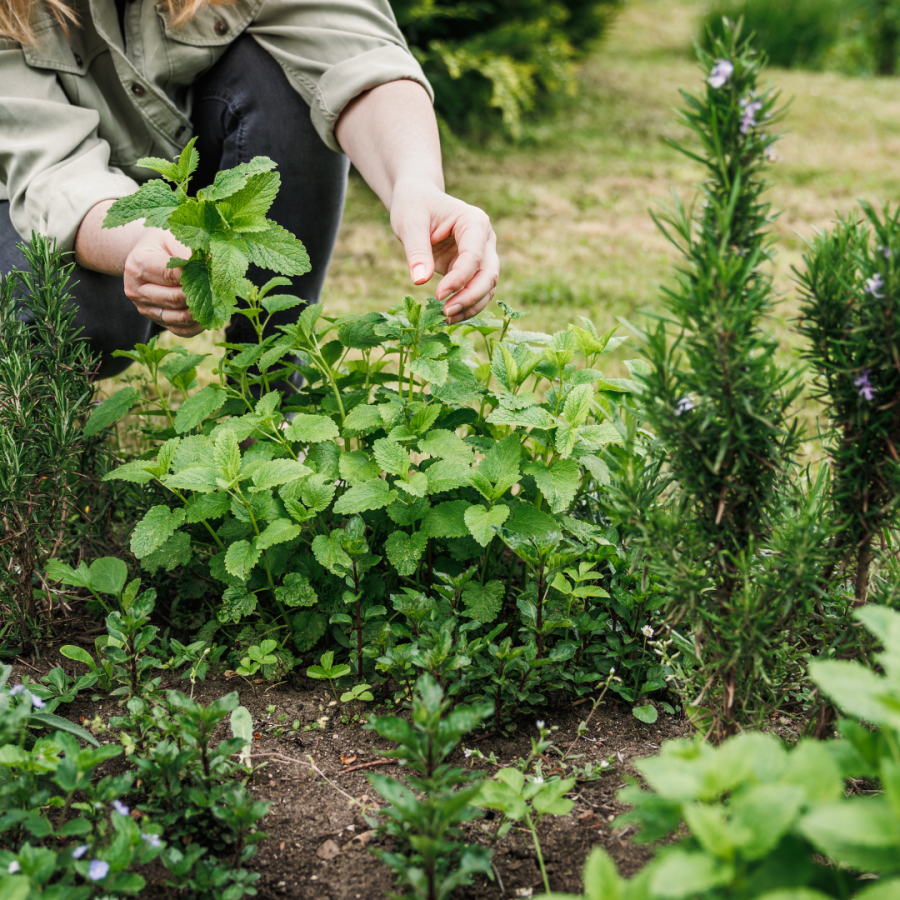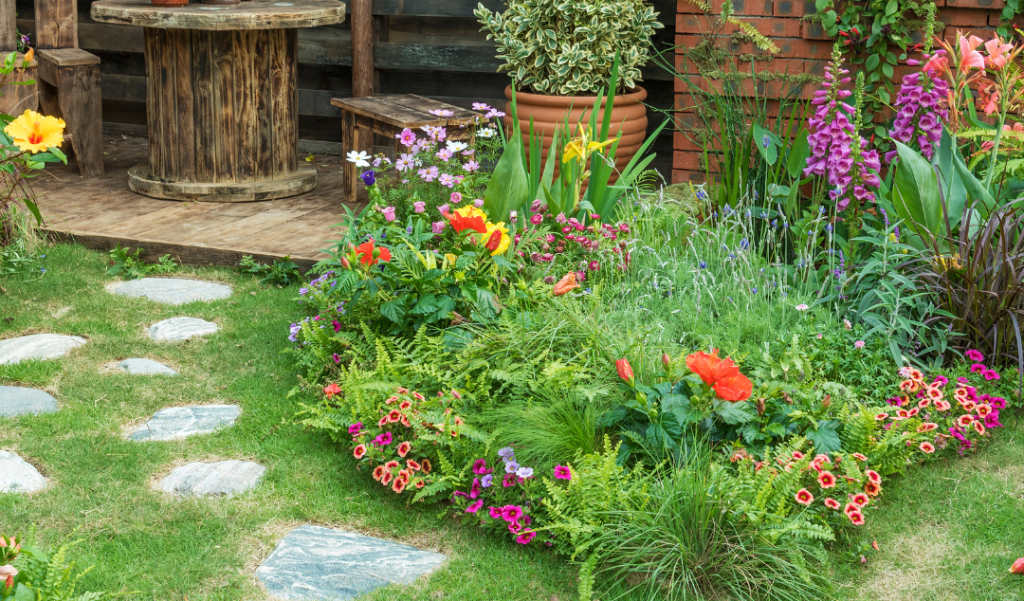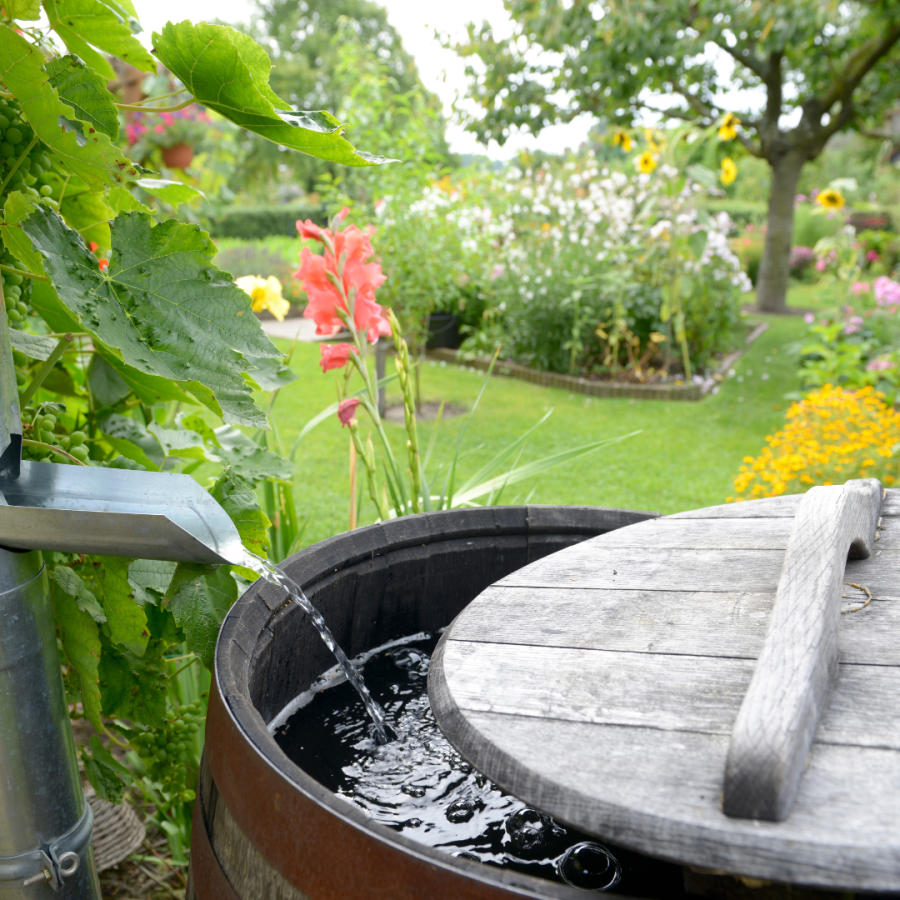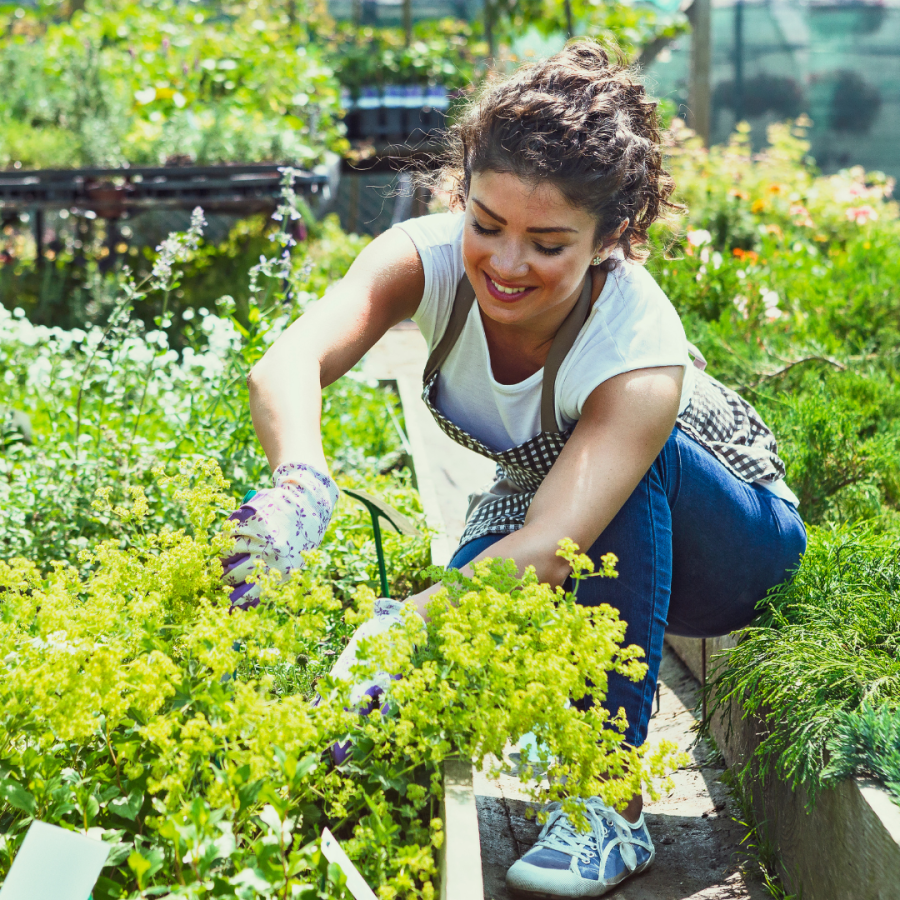
6. Add Eggshells and Coffee Grounds
Don’t throw out your breakfast waste! Add it to your garden instead. Coffee grounds add nitrogen to the soil, while crushed eggshells provide calcium. These are excellent for not only vegetable gardens but rose bushes as well.
7. Incorporate Vertical Gardening
If you don’t have a large yard, consider vertical gardening. This is perfect for small gardens or patios. Use trellises, pallets, wall planters, and hanging baskets to maximize space, grow more plants, and create a stunning visual display.
8. Encourage Wildlife
Install birdhouses, bat boxes, or small water features to invite birds and bats, which help control the pest population and offer safe nesting and roosting spots. Bats are voracious insect eaters, consuming thousands of pests in a single night! Learn to build a bat box here.
9. Create a Garden Journal
A garden journal is a valuable tool for any garden because it helps track and improve your gardening efforts over time. Track planting dates, weather, and progress, helping you refine your gardening techniques year after year. If a plant didn’t thrive, you can look back at your notes to identify possible issues, like pests, soil quality, or watering habits.
10. Cultivate your Health
Caring for a garden does wonders for your well-being. Thirty minutes of moderate-level physical activity a few days a week can prevent and control high blood pressure, and soaking up the sun while tending to your plants prompts your body to make vitamin D. Gardening is also positively linked to a reduction in stress and anxiety.



